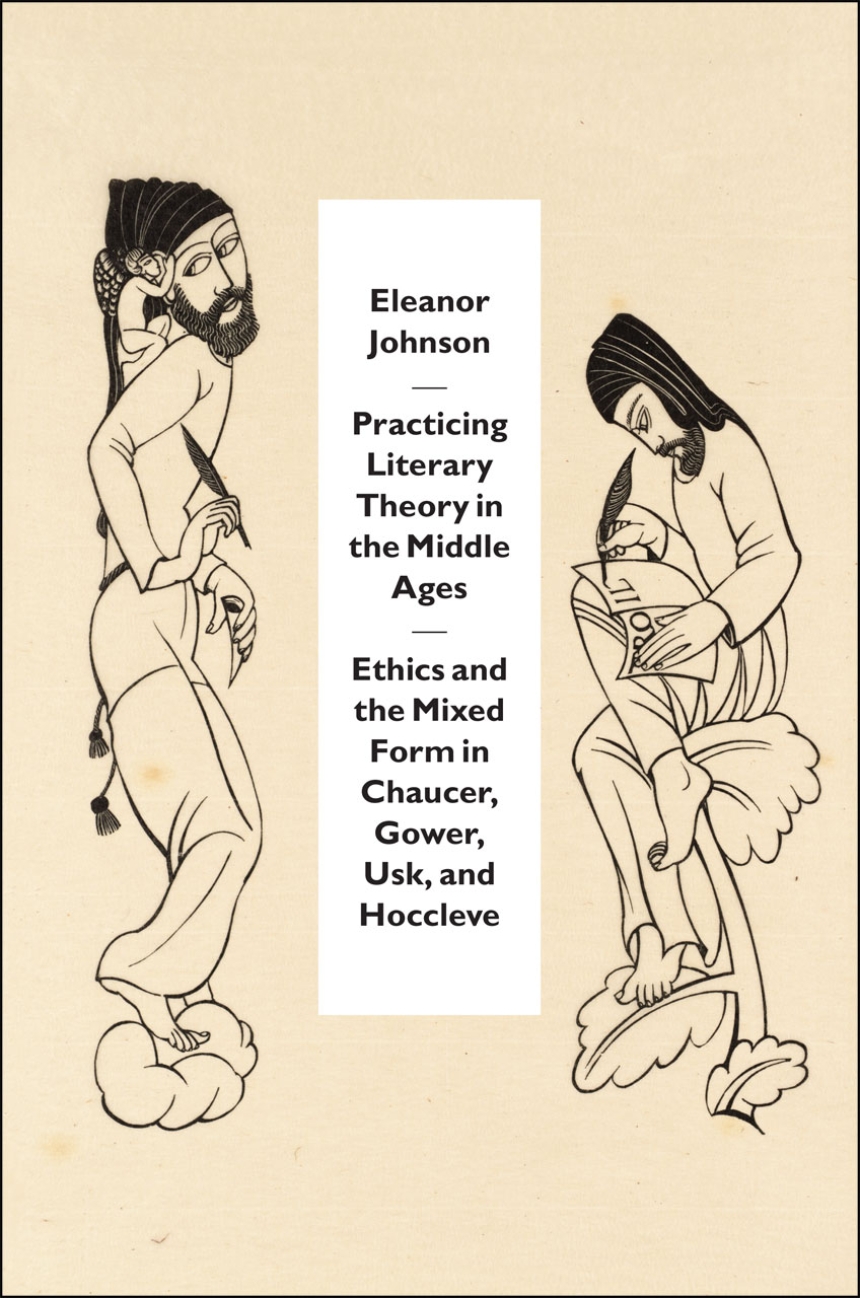Practicing Literary Theory in the Middle Ages
Ethics and the Mixed Form in Chaucer, Gower, Usk, and Hoccleve
9780226527451
9780226015842
9780226015989
Practicing Literary Theory in the Middle Ages
Ethics and the Mixed Form in Chaucer, Gower, Usk, and Hoccleve
Publication supported by the Bevington Fund
Literary scholars often avoid the category of the aesthetic in discussions of ethics, believing that purely aesthetic judgments can vitiate analyses of a literary work’s sociopolitical heft and meaning. In Practicing Literary Theory in the Middle Ages, Eleanor Johnson reveals that aesthetics—the formal aspects of literary language that make it sense-perceptible—are indeed inextricable from ethics in the writing of medieval literature.
Johnson brings a keen formalist eye to bear on the prosimetric form: the mixing of prose with lyrical poetry. This form descends from the writings of the sixth-century Christian philosopher Boethius—specifically his famous prison text, Consolation of Philosophy—to the late medieval English tradition. Johnson argues that Boethius’s text had a broad influence not simply on the thematic and philosophical content of subsequent literary writing, but also on the specific aesthetic construction of several vernacular traditions. She demonstrates the underlying prosimetric structures in a variety of Middle English texts—including Chaucer’s Troilus and Criseyde and portions of the Canterbury Tales, Thomas Usk’s Testament of Love, John Gower’s Confessio amantis, and Thomas Hoccleve’s autobiographical poetry—and asks how particular formal choices work, how they resonate with medieval literary-theoretical ideas, and how particular poems and prose works mediate the tricky business of modeling ethical transformation for a readership.
Reviews
Table of Contents
Acknowledgments
On Spellings and Translations
On Spellings and Translations
Introduction Formalism and Ethics: The Practice of Literary Theory
1. Formal Experiments with Ethical Writing: Prosimetrum and Protrepsis
2. Sensible Prose and a Sense of Meter: Chaucer’s Aesthetic Sentence in the Boece and Troilusand Criseyde
3. The Consolation of Tragedy: Protrepsis in the Troilus
4. Prosimetrum and the Canterbury Philosophy of Literature
5. Political Protrepsis: Usk and Gower
6. Hoccleve and the Convention of Mixed-Form Protrepsis
Conclusion A Mixed-Form Tradition of Literary Theory and Practice
Bibliography
Index
